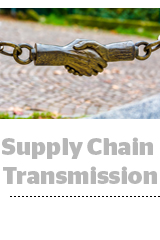 Quantcast began monetizing its consent management platform (CMP) business for the first time on Thursday with the launch of Choice Premium, a paid version of the publisher tool.
Quantcast began monetizing its consent management platform (CMP) business for the first time on Thursday with the launch of Choice Premium, a paid version of the publisher tool.
Quantcast Choice was released about a year ago with the introduction of the IAB Europe’s CMP registry and the Transparency and Consent Framework (TCF), the collaborative industry solution for passing consent along the supply chain in compliance with GDPR.
When marketers and publishers started their GDPR compliance programs in 2017 and 2018, they tended to be internal reviews, said Ari Levenfeld, Quantcast’s chief privacy officer. “But we need a mechanism for everybody in the ecosystem to talk to each other and continue to do business.”
Quantcast got traction with its free CMP in 2018 and this year. It’s the largest CMP in use, according to Adzerk’s monthly site-tracking report. And IAB Europe data shows it passes more impressions through its consent framework than any other CMP.
The paid CMP will have features designed specifically for larger media companies that track consent across many sites or outlets, Levenfeld said.
Euronews has been working with Quantcast on the development of the Choice Premium product for months, because the company expected it would need a more comprehensive solution, once ambiguities in GDPR regulations had been clarified, said Fayez Shriwardhankar, the news company’s data and insights lead.
Following the release of the TCF version 2 in April, with more granular controls for how publishers can collect and use consent data, it makes sense to expand the CMP solution, Shriwardhankar said.
For instance, Euronews operates a central online news hub, sites for TV stations it owns in Europe, Africa and the Middle East, and it has a strategic partnership with NBC for international coverage. Many readers also have consent collected in multiple languages, he said.
Euronews’ in-house audience engagement products also need more consent data features, Shriwardhankar said. The updated consent framework allows publishers to split consent signals based on ad targeting or user experience and personalization for specifics kinds of products.
Euronews is developing a solution that will suggest stories based on one’s reading history, he said. While Euronews needs explicit consent for ad targeting or campaign measurement, that data can be used for content recommendation, which falls within legitimate interest because it’s part of the site service and user experience.
Quantcast’s paid CMP expands the toolset for consent-based site products, Shriwardhankar said.
“One of the challenges we’ve had with the consent tech is there’s no precedent or benchmarks to look to,” he said. “We really want to have a regular feedback loop with Quantcast.”
For Quantcast, establishing revenue for its CMP is now a priority. The IAB Europe raised the price to register as a CMP from about $400 in the first year to $1,350 starting this year, AdExchanger reported in March. Quantcast is one of the larger players in the CMP category (no Google, for now at least, and no AppNexus) and won’t sweat the extra $900, but the engineering time is costly and the consent data management category is poised for growth.
CMP Expansion
Quantcast also hopes to use Choice Premium as a basis for a similar product in the U.S. when companies start addressing California’s new privacy law in 2020, Levenfeld said. It might also be used to accommodate potential federal legislation.
Google joining the IAB Europe consent framework also represents a growth opportunity. Google said it plans to join once the second version of the consent framework, which is currently in a public review phase, is officially completed. That’s likely to be sometime in June, July or even August, if the review process goes longer than usual.
Google would promptly unseat Quantcast as the top consent-based impression provider for the TCF if and when it does register its own CMP tech, known as Funding Choices. But that would be well worth it for Quantcast.
“Once Google integrates with the TCF, that would greatly expand the network and variety of vendors or demand for publishers in the IAB framework,” Levenfeld said.
He said publishers are also making bigger investments in their first-party data assets, which makes a CMP more important because it’s the tool for collecting and parsing audience data.
“We didn’t create the premium product because there’s nothing else to do,” he said. “There’s demand from big publishers, and it’s a notable indicator that those publishers are thinking about data and compliance more seriously.”
This post was syndicated from Ad Exchanger.


More Stories
Why A Challenger Laundry Brand Used AI To Make Its Ads
NZME debuts Kōrero podcast celebrating Māori culture
Lynx Ads Find Dark Humor in a Robbery and a Funeral